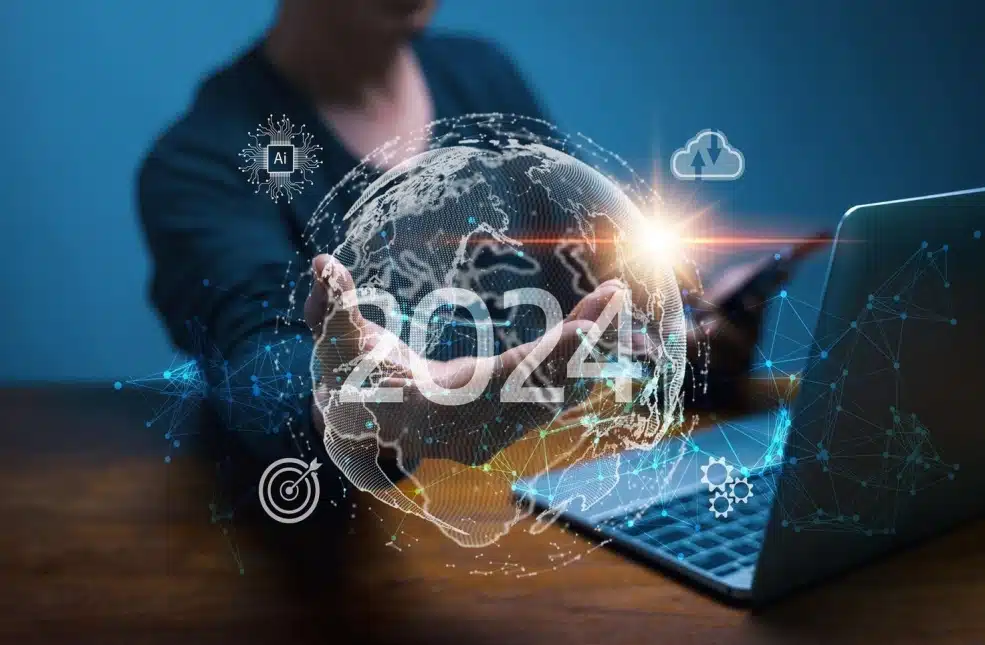Introduction:
Technology has become an inseparable part of our daily lives, shaping the way we work, communicate, and interact with the world around us. From the invention of the wheel to the latest advancements in artificial intelligence and robotics, technology has propelled human civilization forward and transformed the way we live. In this comprehensive article, we’ll explore the evolution of technology, its impact on society, and the emerging trends that are shaping the future of our digital world.
The Evolution of Technology:
The history of technology is a story of innovation, ingenuity, and human progress. From the earliest tools and inventions crafted by our ancestors to the sophisticated technologies of the modern era, humans have continually pushed the boundaries of what is possible.
The invention of the wheel, believed to have occurred around 3500 BCE, revolutionized transportation and enabled the development of wheeled vehicles, carts, and chariots. The invention of writing, which emerged in ancient Mesopotamia around 3200 BCE, marked a pivotal moment in human history, allowing for the recording of knowledge, history, and culture.
The Industrial Revolution of the 18th and 19th centuries brought about a wave of technological innovations that transformed manufacturing, transportation, and communication. The invention of the steam engine, the telegraph, and the spinning jenny paved the way for mass production, global trade, and the rise of modern cities.
The 20th century saw rapid advancements in technology, including the invention of electricity, the telephone, the automobile, and the computer. The development of the internet in the late 20th century revolutionized communication and ushered in the era of the digital age.
Today, we are witnessing the dawn of the Fourth Industrial Revolution, characterized by the convergence of digital, physical, and biological technologies. Innovations such as artificial intelligence, blockchain, virtual reality, and 5G connectivity are transforming industries, economies, and societies in unprecedented ways.
The Impact of Technology:
Technology has had a profound impact on society, culture, and the way we live our lives. It has transformed how we work, communicate, learn, and entertain ourselves. It has revolutionized industries such as healthcare, finance, education, and transportation, creating new opportunities for innovation, growth, and prosperity.
One of the most significant impacts of technology is its role in democratizing access to information and knowledge. The internet has made it possible for people around the world to access vast amounts of information instantaneously, breaking down barriers to education, communication, and collaboration.
Technology has also transformed the way we communicate and connect with each other. Social media platforms like Facebook, Twitter, and Instagram have revolutionized how we share information, express ourselves, and build communities online. Messaging apps like WhatsApp and WeChat have made it easier than ever to stay in touch with friends and family, no matter where they are in the world.
However, technology has also raised concerns about privacy, security, and the impact of automation on jobs and the economy. The rise of artificial intelligence and robotics has sparked debates about the future of work and the ethical implications of autonomous systems.
The Opportunities and Challenges of Technology:
While technology presents numerous opportunities for innovation, growth, and progress, it also poses significant challenges and risks. One of the biggest challenges is ensuring that technological advancements are used for the benefit of all humanity and do not exacerbate existing inequalities.
Another challenge is navigating the ethical and social implications of emerging technologies such as artificial intelligence, biotechnology, and autonomous systems. Questions about data privacy, algorithmic bias, and the potential for technology to be used for surveillance and control are becoming increasingly urgent.
Despite these challenges, technology has the potential to address some of the most pressing issues facing humanity, from climate change and healthcare to education and social justice. By harnessing the power of technology for good, we can create a more sustainable, equitable, and prosperous future for all.
Conclusion:
Technology has become an integral part of our lives, shaping the way we live, work, and interact with the world around us. From the invention of the wheel to the latest advancements in artificial intelligence and robotics, technology has propelled human civilization forward and transformed the way we live.
As we continue to navigate the ever-changing landscape of technology, it’s essential to approach it with mindfulness, critical thinking, and a commitment to using it for the greater good. By embracing innovation, fostering collaboration, and addressing the ethical and social implications of emerging technologies, we can harness the power of technology to create a better world for future generations.

